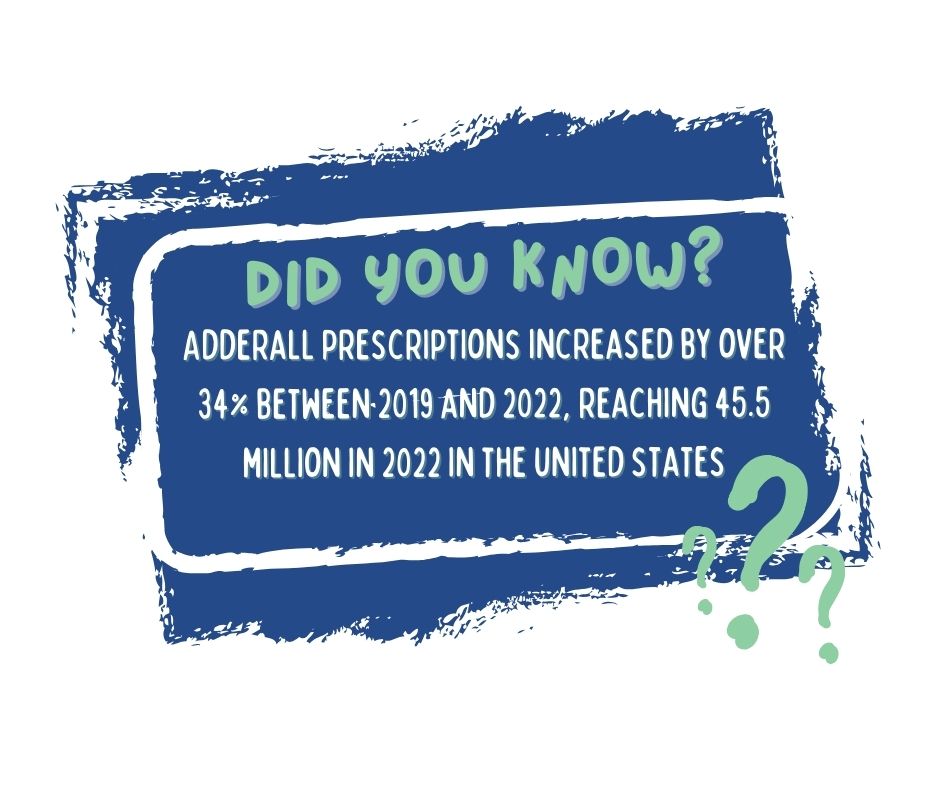Does Adderall Help with Depression? Understanding Its Role and Effectiveness
Does Adderall help with depression? This question arises especially for those dealing with attention issues alongside their mood struggles. Research shows that while Adderall may improve focus and energy levels, it is not primarily used as a treatment for depression.
Individuals sometimes report feeling better when taking Adderall, but this may be linked to increased motivation rather than true relief from depressive symptoms. It’s important to note that Adderall can also have side effects and might not work well for everyone.
Understanding the relationship between Adderall and depression requires a closer look at individual experiences and medical advice. Exploring different treatment options is crucial for those seeking effective relief from depression.

Understanding Depression
Depression is a serious mental health condition that affects many people. It can lead to a variety of symptoms and can be caused by different factors. Its effects can impact daily life and personal relationships.
Symptoms of Depression
Symptoms of depression can vary from person to person. Common signs include:
- Sadness: A persistent feeling of sadness or emptiness.
- Loss of interest: A decline in pleasure in activities once enjoyed.
- Fatigue: Low energy levels and extreme tiredness during routine tasks.
- Changes in sleep: Sleeping too much or too little, or having trouble sleeping.
- Appetite changes: Eating too much or too little, leading to changes in weight.
- Difficulty concentrating: Trouble focusing, making decisions, or remembering things.
Recognizing these symptoms early can help in seeking treatment.
Causes of Depression
The causes of depression can be complex and varied. They may include:
- Genetics: A family history of depression can increase risk.
- Biological factors: Changes in brain chemistry and hormonal imbalances.
- Environmental stressors: Traumatic life events such as loss, abuse, or chronic stress.
- Medical conditions: Certain illnesses or medications can trigger symptoms.
Understanding these factors can help individuals and families address the condition more effectively.
Impact of Depression on Daily Life
Depression can significantly impact daily life. A person with depression may:
- Struggle with maintaining relationships due to withdrawal or irritability.
- Experience difficulties at work or school, leading to poor performance.
- Isolate themselves, causing feelings of loneliness and helplessness.
- Neglect self-care, affecting physical health and wellness.
This impact underscores the importance of treatment and support. It is vital for those affected to seek help.
Adderall Overview
Adderall is a prescription medication commonly used to treat attention deficit hyperactivity disorder (ADHD) and narcolepsy. It is important to understand what Adderall is, its medical uses, and how it works in the body.
What Is Adderall?
Adderall is a combination of two stimulant medications: amphetamine and dextroamphetamine. These substances belong to a class of drugs known as central nervous system stimulants. Adderall comes in both immediate-release and extended-release forms. The immediate-release version works quickly, while the extended-release form provides effects throughout the day.
This medication is available only by prescription, as it has the potential for misuse or addiction. Individuals with certain medical conditions should approach its use with caution and consult a healthcare provider.
Medical Uses of Adderall
Adderall is primarily prescribed for treating ADHD. In patients with ADHD, it helps increase focus, attention, and control over impulses.
Besides ADHD, Adderall is also effective for managing narcolepsy, a sleep disorder that causes excessive daytime sleepiness. In some cases, doctors may prescribe it off-label for depression, particularly when other treatments have not been effective.
Patients should always follow their healthcare provider’s guidelines while using this medication. Misuse can lead to serious health risks, including cardiovascular problems.
How Adderall Works
Adderall works by increasing the levels of certain chemicals in the brain, mainly dopamine and norepinephrine. These neurotransmitters play a key role in mood regulation, attention, and alertness.
By enhancing the activity of these chemicals, Adderall helps improve concentration and reduces hyperactivity in individuals with ADHD. It can also have mood-lifting effects for some patients, which is why it is sometimes explored as a treatment for depression.
Understanding the mechanism behind Adderall is crucial for proper use and management. Individuals should consult their healthcare provider to learn more about its effects and any potential risks.
Adderall and Depression
Adderall is primarily known as a treatment for ADHD, but some people wonder if it helps with depression. Its effects on mood and energy can lead to different outcomes for those experiencing depressive symptoms.
Effectiveness for Depression
Adderall may help some individuals manage their depression, especially if they have ADHD or attention issues. The medication boosts dopamine and norepinephrine, which can improve mood. Reports show that people using Adderall often feel more focused and energetic.
Yet, it is not a standard treatment for depression. Many doctors recommend other antidepressants first. Adderall might be used in specific cases, but its effectiveness can vary from person to person.
Research on Adderall and Depression
Research on Adderall’s role in treating depression is limited. Studies have shown mixed results. Some suggest it can temporarily improve symptoms for certain patients, particularly those with ADHD. Others found no significant benefits.
A few studies indicate potential for stimulant medications in combination with antidepressants. More research is necessary to determine the long-term effects and safety of using Adderall for depression. Reliability is an important concern when considering this option.
Risks and Considerations
Adderall carries risks that must be considered. Common side effects include insomnia, anxiety, and increased heart rate. These can worsen depression for some individuals.
There is also the risk of abuse and dependence. When prescribed, it requires careful monitoring by a healthcare professional. Anyone considering Adderall for depression should discuss it thoroughly with their doctor to weigh potential benefits and downsides.
Treatment Alternatives
There are various effective options for treating depression apart from medications like Adderall. Treatment can include different types of therapy, alternative medications, and lifestyle changes that support mental health. Each alternative offers unique benefits and can be tailored to individual needs.
Therapy Options
Therapy is a common method for treating depression. Two widely used types are Cognitive Behavioral Therapy (CBT) and Interpersonal Therapy (IPT).
- Cognitive Behavioral Therapy (CBT) helps individuals identify and change negative thought patterns. It focuses on building coping skills and can lead to improved mood.
- Interpersonal Therapy (IPT) addresses relationship issues that may contribute to depression. It helps patients improve their communication and build stronger relationships.
Both therapies often take several weeks to show improvement, with sessions usually lasting about 45 minutes to an hour.
Medication Options
There are many medications available to treat depression without using Adderall. Some common alternatives include:
- Selective Serotonin Reuptake Inhibitors (SSRIs): These are often the first choice. Examples include fluoxetine and sertraline.
- Serotonin-Norepinephrine Reuptake Inhibitors (SNRIs): Medications like venlafaxine can be effective as well.
- Atypical Antidepressants: These work differently from typical antidepressants. Bupropion is one example that also helps with attention issues.
Each of these medications has its own side effects and benefits, so a healthcare provider can help choose the right option.
Lifestyle Changes and Self-Care
Making changes in daily habits can greatly improve depression symptoms. Some effective self-care strategies include:
- Exercise: Regular physical activity releases endorphins, which boost mood.
- Healthy Diet: A balanced diet with plenty of fruits, vegetables, and whole grains can support mental health.
- Sleep Hygiene: Getting enough sleep is crucial for emotional well-being. A regular sleep schedule can make a difference.
- Mindfulness and Relaxation Techniques: Practices like meditation and deep breathing can help reduce stress.
Incorporating these changes can create a supportive environment for managing depression.
Frequently Asked Questions Related to Does Adderall Help with Depression
This section addresses common questions about the use of Adderall for managing symptoms of depression. Key topics include dosage recommendations, effects on anxiety, and potential side effects like emotional numbness.
What is the recommended dosage of Adderall for managing depression symptoms?
Adderall is primarily prescribed for ADHD. When used for depression, a doctor may start with a low dose. The exact dosage varies based on individual needs and responses.
Can the use of Adderall in adults lead to an improvement in anxiety and depression?
Some adults report an improvement in symptoms of anxiety and depression when taking Adderall. It may help improve focus and energy levels, but results can differ from person to person.
Are stimulants like Adderall effective in treating depression-related fatigue?
Stimulants like Adderall can sometimes help with fatigue linked to depression. By increasing energy and alertness, they may provide temporary relief from tiredness.
Is there a correlation between Adderall usage and emotional numbness?
Some users have reported feelings of emotional numbness while taking Adderall. This side effect can affect emotional responses and overall mood.
Can the use of Adderall contribute to weight loss in patients with depression?
Adderall can suppress appetite, leading to weight loss in some patients. This effect might be beneficial for those struggling with weight gain due to depression.
Does Adderall impact memory capabilities in individuals with depression?
Adderall can enhance focus and attention, potentially improving memory in some users. However, effects on memory can vary and depend on individual factors.
You’re not alone, and help is always within reach. Contact us today at (774) 619-7750 and take control of your mental health.




